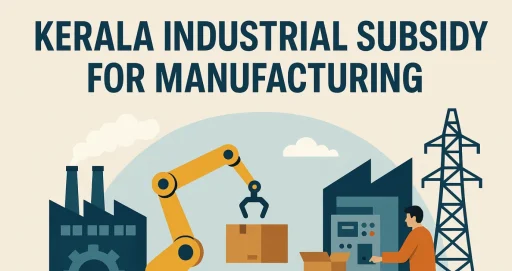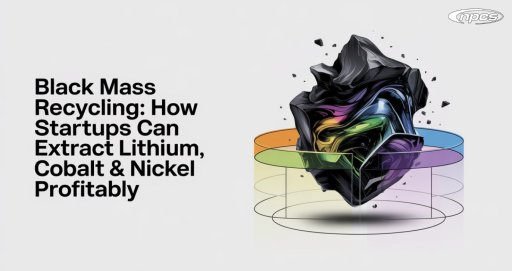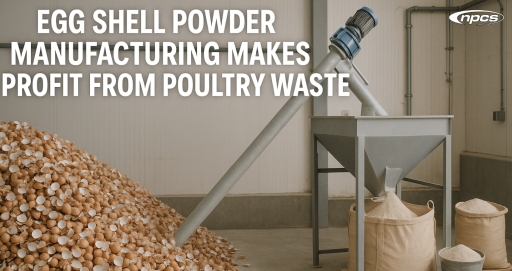India sees a green industrial revolution through biodegradable packaging and the circular economy. This has been driven by rising awareness on the environment, regulations, and change in consumer values. The rapidly growing sustainable packaging market in India was last valued at USD 11.93 million in 2024 and is expected to spike to USD 21.06 million in 2033 while growing at a CAGR of 6.19%. This momentum is creating a billion-dollar opportunity for Indian startups ready to innovate and lead the charge.
The Rise of Biodegradable Packaging in India
Biodegradable packaging refers to all those types of packaging materials that decompose naturally in the environment, thus reducing pollution and waste in landfills. This alternative has become very popular in India with increasing bans on single-use plastics and growing consumer interest in such green alternatives.
Startups are trying to redefine the packaging scenario using sugarcane bagasse, plant-based polymers, and compostable films as the primary raw materials for the manufacture of these “green” packaging materials. Some of the interesting players in the development of biodegradable packaging include Uflex Limited, which launched biodegradable laminates specifically designed for F&B applications. Bellator Beverages has launched its first paper-water bottle, “Papel,” made primarily from 75% paper, claiming to be India’s first plastic-free water bottle.
The biodegradable packaging market, however, is projected to grow at a CAGR of 7.1% to reach USD 5.4 billion by 2032. This presents a vast opportunity for scalability, affordability, and planet-friendliness for startups.
Circular Economy: A New Business Blueprint
In other words, a circular economy is a regenerative approach that seeks to minimize waste and maximize benefits from the use of resources. Rather than the traditional linear model of take-make-dispose, the circular economy emphasizes reuse, recycling, and composting. The formalization of this model is transforming the Indian industry’s packaging segment, pushing startups to rethink the entire product lifecycle-from design to disposal.
Some of the government-led initiatives include CSIR’s national mission on sustainable packaging-where R&D efforts are aligned against industry goals. Major brands are joining in:
- Nestlé’s Project Hilldaari addresses plastic waste in tourist destinations like Mussoorie.
- ITC’s Filo Series replaces plastic in food packaging with sustainable board-based alternatives.
By 2025, forecasting suggests sustainable packaging will be hitting India with USD 11.1 billion. This market shares the center with biodegradable packaging and circularity at its core.
Government Policy Support: Accelerating Innovation
Government policies in India are rough and solid catalysts changing conditions in favor of businesses to adopt biodegradable packaging and to transform towards a circular economy. Major policies and initiatives include:
- Plastic Waste Management Rules (2016): Mandates compostable material use; introduces Extended Producer Responsibility (EPR).
- Swachh Bharat Abhiyan: Enables a complete waste management system by encouraging and promoting eco-alternatives.
- CSIR’s Sustainable Packaging Mission: Uniting eight national laboratories to work on affordable biodegradable packaging materials.
This sort of policy framework allows the startup to be innovative while also encircling compliance to the national sustainability goals, whereby compliance is transformed into competitive advantage.
Eco-Conscious Consumers Reshaping Market Demand
Indian consumers are more aware of environmental issues today than they used to be. Over 75% are willing to pay 20% more for sustainable products. This shift in behavior comes like a blessing to startups focused on biodegradable packaging and the circular economy.
Paper Boat brands, for instance, are using compostable tetra packs, while FabIndia uses jute bags to eliminate plastic from its packaging lines. The demand for green packaging is especially high in the sectors of e-commerce, FMCG, and healthcare—this makes a huge market for startups that embrace consumer values.
Innovations Fueling Sustainable Packaging
Advanced Biodegradable Materials
Indian startups are leading the charge in the development of futuristic, earth-friendly packaging products such as:
- Bioplastics: which are made from cornstarch or algae: A sustainable substitute for petroleum-based plastics.
- Mushroom: Based Packaging: Made from mycelium and used in cushioning and protective packaging.
- Edible Films: Derived from starch, these thin films offer food preservation without waste generation.
Each of these innovations directly contributes to the circular economy by reducing resource extraction and increasing recyclability.
Smart Recycling Systems
Technology plays a critical role in the implementation of circular economy. For example, DCGpac utilizes AI-based sorting systems and blockchain traceability to ensure transparency and efficiency in waste management. Another innovator, Uravu Labs, is focused on making biodegradable materials with low water-use in order to make green packing material viable even in water-scarce areas.
Challenges and Opportunities for Startups
High Costs and Infrastructure Gaps
One of the challenges is the high-cost factor. Biodegradable packaging usually costs about 30-50% more than conventional packaging. However, companies such as Khyber Agro show the way to make costs viable. They have reduced overall packaging costs by switching to biodegradable in-mold labeling (IML) buckets.
A startup called Greenhandle is facilitating direct connection between businesses and suppliers for biodegradable packaging while also helping them save on bulk procurement and aggregation.
Supply Chain and Ecosystem Development
For efficient scaling, startups should:
- Build partnerships with raw material suppliers (like agricultural co-ops for bagasse).
- Collaborate with logistics and waste management networks to ensure recycling or composting infrastructure.
- Educate stakeholders about circular economy benefits to gain ecosystem support
Startup Success Stories: Leading the Change
Here are some startups that are turning theory into action:
- Greenhandle connects 500+ enterprises to biodegradable packaging suppliers. The model has successfully curbed plastic consumption of the partnered firms by 40%.
- Biotrem manufactures edible tableware from wheat bran and is tapping into the growing demand among caterers and quick-service restaurants (QSRs).
- Ecoware provides plant-based disposables that are compostable and claims to have abated over 10,000 tons of plastic waste annually.
These activities exemplify a sustainable and profitable circular economy.
Roadmap for Startups: Scaling Smart and Sustainably
To fully leverage this billion-dollar opportunity, Indian startups should:
- Focus on Localized Production
Collect biodegradable raw materials from local farmers and cooperatives so as to strengthen the rural economy and reduce costs. - Invest in Consumer Education
Awareness campaigns that highlight environmental advantages and long-term savings will drive the adoption of biodegradable packaging. - Engage in Policy Advocacy
Startups should engage with government agencies to smoothen the certification process and improve subsidies and regulatory compliance. - Prioritize R&D and Patents
Undertake continuous research of cost-effective bioplastics to achieve success and differentiation in the long run. - Create Closed-Loop Supply Chains
A totally circular proposition—in which every product component is either recyclable or compostable-will probably constitute a key competitive edge.
Conclusion: The Green Future is Now
India’s shift to biodegradable packaging and the circular economy does not often present itself as an environmental necessity- but an opportunity in business that comes very rarely in life. With market developments which show prospects of doubling in less than a decade, these are startups that join now to pioneer sustainable innovations in their more visionary block.
By using technology, forming partnerships, and being aligned with changing consumer and policy priorities, Indian entrepreneurs can emerge as leaders of a green revolution. It is much more than packaging because it builds a sustainable India, one biodegradable solution at a time.
Some More Links
Join With Us
Related Blogs
https://www.niir.org/blog/starting-a-silicon-crystals-business/
https://www.niir.org/blog/the-most-profitable-chemical-industry-business-in-the-philippines/#
Join us on YouTube
https://www.youtube.com/c/NIIRproject/playlists







